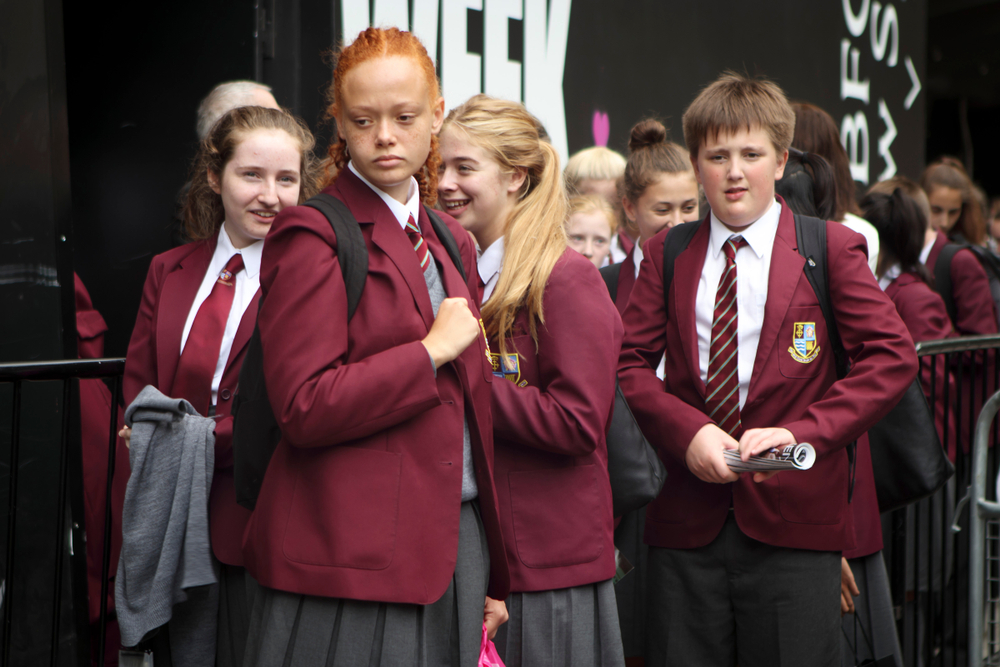Going to a new school can bring up lots of different feelings. Excitement, worry, nervousness, or perhaps relief. You may even feel all of these things when you think about changing school. If you do, this is completely normal.

These are some reasons young people change schools:
I’m unhappy at my school and think a fresh start at a new school will help. There may be different reasons things aren’t working out at your current school. For example, not getting enough help with learning, bullying, or feeling left out. If the reasons can’t be sorted out then sometimes a new school might help.
Choosing a new school can be both exciting and a bit scary.
We spend a lot of time in school each day this adds up to a lot of years while you’re young! So, it’s really important to try and find a school that feels right for you both educationally and socially. School is a community, as well as a place to learn, so it plays a big part in our social life.
Here are some things that can help when you’re thinking about a new school.
Friends & siblings
Interests
School atmosphere
Facilities
Travel
If you’re moving up to secondary school or changing schools for another reason this is often called ‘transition’. The word just means change.
Change can be both exciting and a bit scary so getting help and support can really help you settle in.
Here are some things schools can do to help. Remember we’re all different so you might not need or want some of the help on offer.
These are just some examples of things schools can do to help you. There will be other things that you know will help you that you or your parent/carer can suggest. The most important thing is talking to the school and arranging what’s best for you. If you need someone to talk to about moving school and how to get help please contact us.
Here are the main type of schools for young people aged between 11 and 18.
Mainstream secondary schools
Special Schools
Alternative Provision schools
Independent Schools
Grammar Schools
This is what some of the names and terms we’ve used on this page mean.
Bullying is the repetitive, intentional hurting of one person or group by another person or group. It can happen face to face or online. If you feel you’re being bullied try and talk to someone you trust, like a parent/carer or other trusted adult. You can also get help on the National Bullying Helpline website.
Education Health & Care Plan This is a legal document that says what you need to help you get the best out of school. This is so you can do your best and do the things you want to do in the future. You can find out more on our “What is an EHCP” page.
Elective home education is when you, your parents or carer choose for you to learn at home rather than go to school each day. You might join in groups with other young people who are also home educated. This way you get to learn things in a group. There is more information about this on our “Elective Home Education” page.
School Atmosphere This can be hard to describe, but it means how a school feels when you walk around. Is it calm? Is it lively? Is is friendly? Is it strict? Is it laid back? These are some of the ways people think about school atmosphere.
School open days These are specific days you and your parents/carers can go and look around a new school. They usually happen in late September and October for secondary schools. There are usually talks by the Headteacher and other staff. You might get to take part in some demonstration lessons too. Other young people and their families will also being looking around at the same time.
Starting at a new school. Some advice from the The Mix
Advice from the people at Changing Faces, the charity that supports people living with a visible difference.
A helpful guide to secondary school from Childline
You can find some helpful information from the Cystic Fibrosis Trust about starting secondary school.
Page updated: April 2024
Page due for review: April 2026
DiAS (Devon, Information, Advice and Support) supports children and young people aged 0-25 with special educational needs and disabilities (SEND), and their parents and carers.
Helpful links
Contact us
Legal
© 2025 Devon Information Advice & Support
Searching...